
Throwback Thursday is a DyeStat feature that allows us to remember and celebrate some of the great meets and performances that have been a part of our DyeStat coverage since John Dye founded the site. Thanks to many stories, photos and videos that have been preserved in our archives, we are able to relive and share with you some of the very best of DyeStat.com.
Webb, South Lakes electrify Penn
By Steve Underwood
2000 DYESTAT PENN COVERAGE | 2000 DMR PAGE | 2001 DYESTAT PENN COVERAGE | 2001 DMR PAGE | 4X800 PAGE
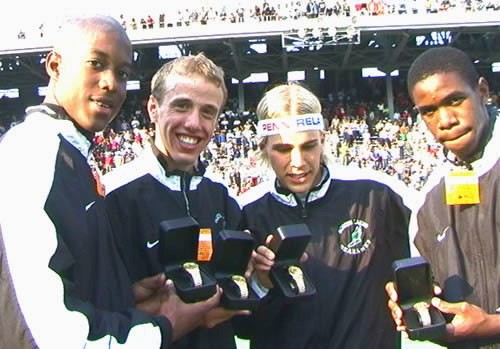
When most track fans think of Alan Webb’s incomparable high school career, they almost certainly think first of his US record 3:53.43 mile at Prefontaine during the spring of 2001 and the 3:59.86 he ran at the New Balance Games the preceding winter, when he became the first prep sub-4:00 miler indoors. Then perhaps they think of the 1:47 800 and 8:45 2-mile PRs he had, showing unparalleled range, or maybe the 4:06 he ran a sophomore that first really put him on the national stage.
But what about the relays? Yes, the relays ... because with Alan Webb, any school’s quartet becomes formidable – and South Lakes High School of Reston, Va. had, in 2000 and 2001, considerably more talent than just Webb. During those two years, with Webb, Richard Smith, Kanda Karmo, Justin Smyser, Yonathan Kebede and Elliott Collins exchanging the stick, they electrified the Franklin Stadium crowd as perhaps no prep distance runners ever have. And the performances they authored here, with the still-standing individual and team records, were a huge part of the two-years-plus that represented the dramatic arc of Webb’s prep career.
Were these performances, these moments, as special in their own way as the epic individual records? “They really, really were,” Webb said from Portland this week. “It was equally as thrilling to be able to share that with my team. Winning Penn and setting records in the DMR were major goals of mine, too ... we weren’t deep enough overall as a team to win state titles, but we had a very strong core group to be able to put together those kind of relays.”
When South Lakes came to Penn in 1999, with Webb then a sophomore, they placed an impressive third in the DMR at 10:19.80, then eighth in the 4x800 at 7:56.15. But by April of 2000, Webb had a Nike Indoor mile title in hand and a fresh 4:03.52 1600 PR from Taco Bell. Coach Scott Raczko had more talent in the barn, led by Smith. But Smith was just a sophomore and a ways from being the long-sprint/mid-distance superstar he would eventually become. They wanted to improve from last year, but they hope to be close to 10:10? Could they possibly be 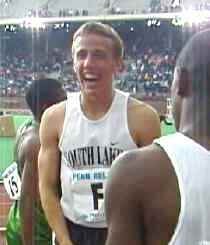 competitive with a three-time defending champ St. Malachy’s (Ireland) squad which had run a meet record 9:59.84 the year before?
competitive with a three-time defending champ St. Malachy’s (Ireland) squad which had run a meet record 9:59.84 the year before?
It was Friday, April 28, 2000 at Franklin Field and, as DyeStat Editor John Dye would put it, it ended with “40 minutes of electricity.” the most electric of those minutes were when Webb had the baton for the DMR. But the drama started on the first turn of the first leg, when St. Malachy’s Thomas Frazer dropped the baton. “He looked around, seeming to expect a restart, before finally starting up again in last place,” wrote Dye. “But the 1200 meter leg is forgiving, so Frazer caught the leaders after two laps.”
St. Malachy’s anchor Conor Sweeney told Dye they expected to have the lead when he got the baton, but instead they were right behind St. Anthony’s of New York. When Webb got the baton, however, he was in 11th place and almost 10 seconds back. Smith (3:13.9), Collins (48.3), and Karmo (2:00.2) had run fine legs and a good carry by Webb would net a massive school record and possibly a top three finish. How fast could he go?
Webb, who Dye was already calling “America's hope as the next 4-minute miler,” started picking off runners (imagine Ed Cheserek’s many come-from-behind DMR efforts). “Quickly to fifth on the first lap. To second at the start of the bell lap. The announcer said Webb turned three laps in 3:03.”
Then Webb turned on the afterburners, but Sweeney – who was putting forth a measured effort – had something left in the tank, too. Webb closed within less than two seconds, but that was it. St. Malachy’s won their fourth crown in 10:00.70 to South Lakes’ 10:02.32.
Then the announcement came that made Franklin Field explode. Webb had run 3:59.9, the “fastest four laps” by a high school runner since Marty Liquori broke 4:00 in 1967. “Yeah! Yeah!” shouted Webb, leaping into the air and hugging teammates.
“Only 9.3 meters,” Webb said in comparison. He contrasted the race to South Lakes’ 1999 effort. “Last year, when I got the baton I couldn't see anyone. This year I could see the leaders and I thought I had a chance. I just didn't have enough track. I wasn’t consciously trying to catch anyone; I just wanted to run my own race.”
Looking back on it this week, Webb said “I just went all out, trying to catch those guys ... 4:00 had been a goal of mine since my sophomore year, so see that number for a 1600 relay leg was like, all right, I’m getting there.” The 3:59.9 still stands as the best prep DMR anchor leg ever at Penn.
“It definitely gave me a lot of confidence,” he continued. But he said it also made him a little “overzealous” in his training, leading to injury issues that cut short that junior year. “I could have done it (run sub-4 for a full mile) my junior year,” he contended. “Not 3:53, but ducked under 4:00.”
Also, he added, the runner-up finish “left something to be desired.” So fast forward 12 months to the 2001 Penn Relays and plenty of inspiration. “Webb Mania” and the “Big Three” hype (Webb and fellow prep distance stars Dathan Ritzenhein and Ryan Hall) was off the charts. Webb had run his sub-4:00 indoors, Smith was better, and Smyser and Kebede would handle the other legs as South Lakes went for the double (teams can no longer run both long relays).
But there was another factor as well: The boys from Reston had a chip on their collective shoulders. Not from 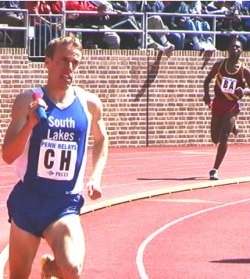 previous Penn races or wanting to beat St. Malachy’s (they weren’t there in 2001), but from two stinging defeats over the previous several weeks that winter and spring.
previous Penn races or wanting to beat St. Malachy’s (they weren’t there in 2001), but from two stinging defeats over the previous several weeks that winter and spring.
For another DMR superpower had emerged with Atlantic of Del Ray Beach, Florida and the Jefferson twins, Sean and John. Both twins could run well under 4:10 and, at Nike Indoor, put South Lakes in a hole they could not get out of and triumphed, 10:03.70 to 10:05.72. Those were the #2-3 times in US history at the time. Then five weeks later at the Arcadia Invite, the teams met up again with Atlantic gapping South Lakes by 10 seconds before Webb got the baton.
Webb had already run an epic 4:01.81 mile that evening, hammering both Jeffersons and Ryan Hall. On the DMR anchor, he went out in 1:57 to try and catch John Jefferson, but Jefferson had gone out conservatively and negative splitted himself to take his team across the line in a ridiculous 9:57.88 – #3 all-time and seven seconds ahead of Webb (4:04) and South Lakes.
All that is to say that coming into Penn, even with Atlantic not in the field, South Lakes was “very motivated,” recalled Webb.
The two-day mission started well, with Webb ripping a 1:50.2 anchor Friday morning to rally South Lakes to a 7:47.16 4x800, leading qualifiers into Saturday afternoon’s final. Then came the DMR. This time, there would not be a huge comeback or another 3:59.9 or better. There would, however, be three fine legs from Smith (3:07.2), Smyser (50.4), and Karmo (1:57.4), a well-paced, negative split 4:04.7 carry by Webb, and – a nice bonus – a still-standing meet record 9:59.66, good for US#6 all-time overall back then.
Absolutely radiant, Webb was asked afterward why he seemed more happy than in some previous individual triumphs. “Yeah, baby, I’ve got one of these!” he replied. “These,” of course, were the gold watches that Smyser, Smith and Karmo all earned, as well.
On Saturday, Webb, Smith and Karmo would claim their second watches, and Kebede his first, as South Lakes ran away late with the 4x800. Karmo and Kebede would start out with 2:00.8 and 1:59.2, leaving the squad mid-pack. But Smith ripped a massive PR 1:52.7 third leg. “I knew I had to get up to the leaders,” he told Dye.
Webb, now with the lead, went out a bit fast on the anchor, but held on well for a 1:49.1 split and the 7:41.75 triumph. Again, the anchor split remains the fastest ever in Penn history.
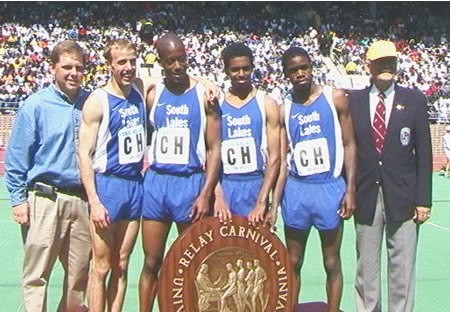
“We went 3 for 3,” he would say afterward. “You can’t beat 50,000 fans screaming for you to go.”
Remembering the relay double now, Webb said, “In both races, we were right there when I got the baton. My teammates really stepped it up and took the pressure off me. I was playing with house money at that point.”
That was it for Webb at Penn, but the 2001 senior year saga for he and his teammates was far from over. The 3:53.43 at Pre was most notable, of course, but no less satisfying for Webb was the crazy weekend in Raleigh three weeks later. It was there, at the adidas Outdoor Championships (adidas sponsored the NSAF’s championships back then) that South Lakes finally beat Atlantic and the Jeffersons in the DMR, destroying the USR by more than three seconds with a 9:49.78.
The meet had been postponed Saturday by a thunderstorm that drowned the track in several inches of water. But Sunday dawned sunny and warm, the track drained and the meet concluded. Some participants had to fly home, but the principals in the boys DMR battle stayed around to produce the epic conclusion. Smith, who would run 1:48 for 800 in 2002 as a senior, had now mastered the 1200 and opened in 3:03. Webb finished it off with a devastating 3:59.8. Like a lot of other Webb/South Lakes records, 9:49.78 has barely been threatened since and no one else has produced any sub-4 anchors.
“We really put one out there,” he said.
South Lakes had also won the 4x800 on Friday in 7:35.33, beating Atlantic there, too. Coach Raczko would remember Penn as he assessed the season to journalist Pearl Watts. “What a great season it’s been for them. Two Penn Relays victories in the 4x800 and DMR, and a Relays record in the DMR, and then two national championships in the same two events with a national record in the distance medley. That’s great stuff and they will remember it forever.”
In the 12 years since, of course, Alan Webb’s career has been as scrutinized as any in the sport, details of which can be left for other stories. The highlights have included a 3:46.91 US record in the mile in 2007, a time no one globally has touched since. And Webb is one of only two runners in history to break 1:44 for 800 (1:43.84) and 28:00 for 10k (27:34.72). Presently, he’s training with Jerry Schumacher’s group in Portland with an eye on the 5,000 and 10.000 meters for the future, perhaps even the marathon. This weekend, he is opening his campaign at the Payton Jordan meet at Stanford.
It’s been 12 years, but most of those track fans who were around for Webb’s prep career from 1999-2001 haven’t forgotten it. There was the combination of improvement of prep distance performances during that era, led by Webb, along with the growing popularity then of media coverage of the sport on the internet. The Penn performances may not have been as huge as 3:53.43 and 3:59.86i, but for Webb, his South Lakes teammates, and fans at Franklin Field, they will stick firmly in memory.
Like Coach Raczko said, they will remember it forever.
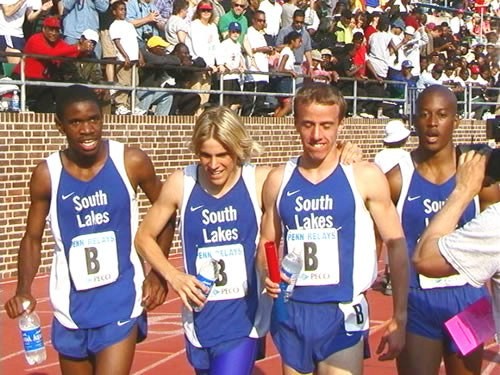



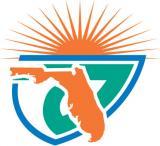


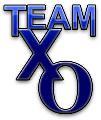
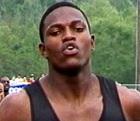


 competitive with a three-time defending champ St. Malachy’s (Ireland) squad which had run a meet record 9:59.84 the year before?
competitive with a three-time defending champ St. Malachy’s (Ireland) squad which had run a meet record 9:59.84 the year before? previous Penn races or wanting to beat St. Malachy’s (they weren’t there in 2001), but from two stinging defeats over the previous several weeks that winter and spring.
previous Penn races or wanting to beat St. Malachy’s (they weren’t there in 2001), but from two stinging defeats over the previous several weeks that winter and spring.
